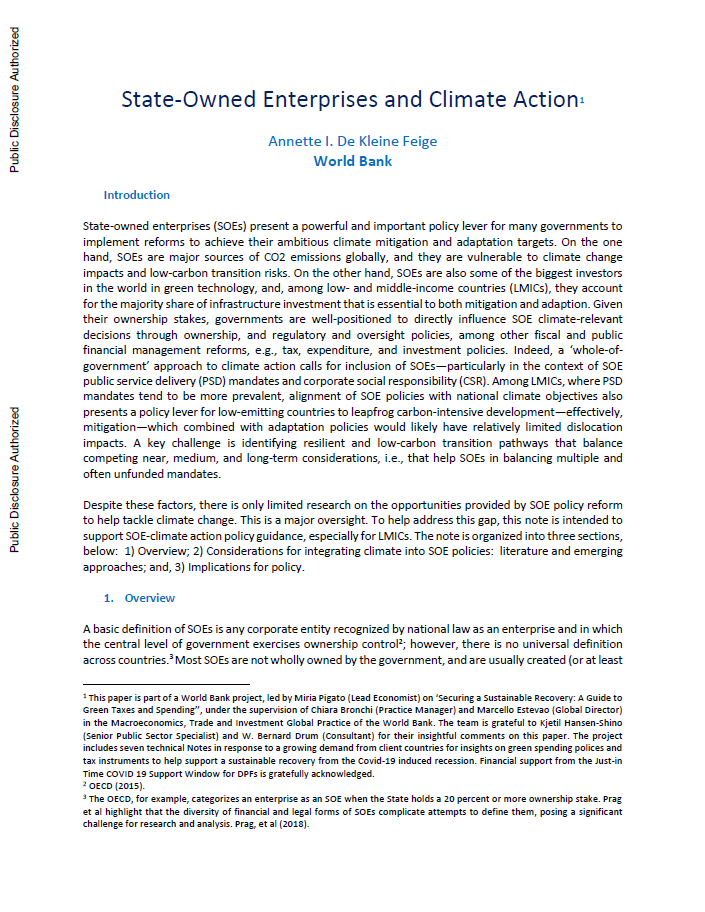State-Owned Enterprises and Climate Action

State-owned enterprises (SOEs) present a powerful and important policy lever for many governments to implement reforms to achieve their ambitious climate mitigation and adaptation targets. On the one hand, SOEs are major sources of carbon dioxide (CO2) emissions globally, and they are vulnerable to climate change impacts and low-carbon transition risks. On the other hand, SOEs are also some of the biggest investors in the world in green technology, and, among low- and middle-income countries (LMICs), they account for the majority share of infrastructure investment that is essential to both mitigation and adaption. Given their ownership stakes, governments are well-positioned to directly influence SOE climate-relevant decisions through ownership, and regulatory and oversight policies, among other fiscal and public financial management reforms, for example, tax, expenditure, and investment policies. There is only limited research on the opportunities provided by SOE policy reform to help tackle climate change. To help address this gap, this note is intended to support SOE-climate action policy guidance, especially for LMICs. The note is organized into three sections: (1) overview; (2) considerations for integrating climate into SOE policies: literature and emerging approaches; and (3) implications for policy.



